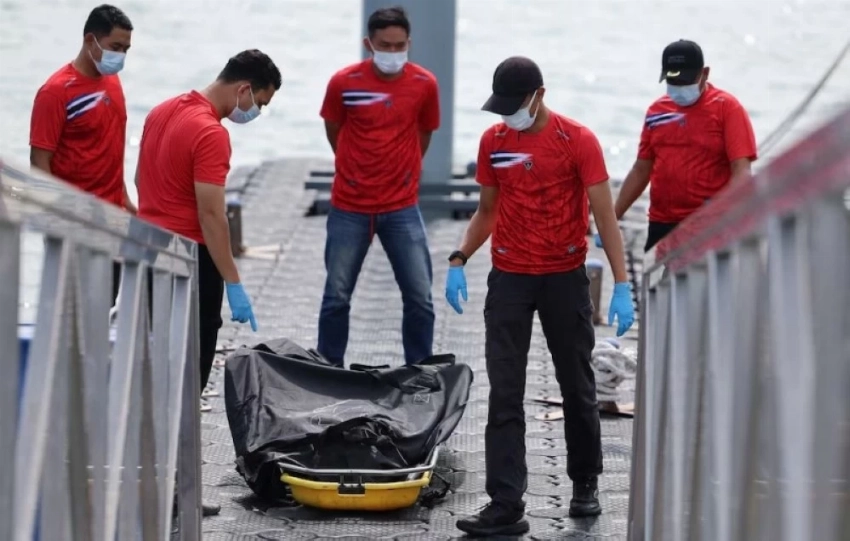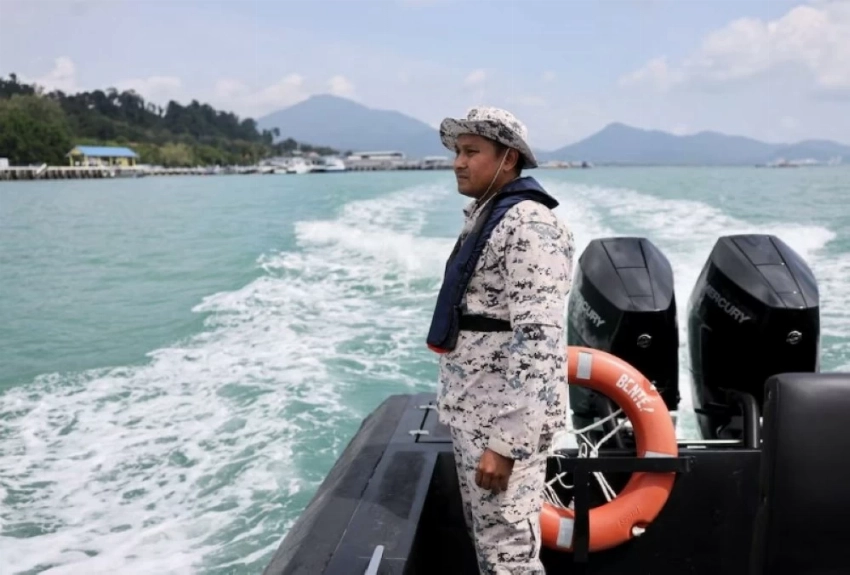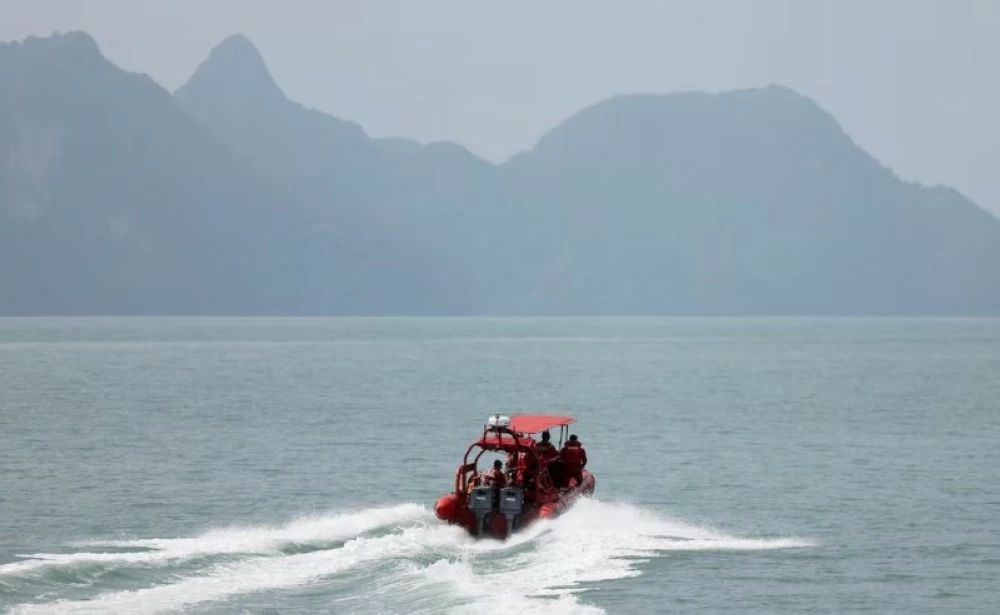ارتفع عدد الضحايا المؤكدين في حادثة غرق قارب يحمل أعضاء من الروهنغا، الأقلية المضطهدة في ميانمار، إلى 11 شخصاً الاثنين، وفقاً للسلطات، مع اعتقاد بأن نحو 70 شخصاً كانوا على متن السفينة الغارقة قرب الحدود بين تايلند وماليزيا.
ولا يزال مصير قارب آخر يحمل 230 راكباً غامضاً، حسبما أفادت السلطات الماليزية، مشيرة إلى العثور على 13 ناجياً حتى الآن، معظمهم من الروهنغا.
السلطات التايلندية تتدخل
كما أعلنت السلطات التايلندية استعادة 4 جثث، بما في ذلك طفلان، تضاف إلى الجثث السبع التي وجدتها وكالة البحرية الماليزية.
ويواجه الروهنغا عنفاً شديداً في ميانمار وظروفاً معيشية قاسية في مخيمات اللاجئين الشاسعة في بنغلاديش، ما يدفعهم إلى محاولات الهجرة عبر رحلات بحرية خطيرة منتظمة نحو ماليزيا وإندونيسيا.
وتُعد ولاية راخين الفقيرة في ميانمار، التي عانت لسنوات من النزاع والجوع والعنف العرقي الموجه بشكل أساسي نحو الأقلية المسلمة الروهنغية، مصدراً رئيسياً لهذه الهجرة.
وطُرد الروهنغا من راخين عقب حملة عسكرية وحشية عام 2017، ويعيش اليوم نحو 1.3 مليون منهم لاجئين في بنغلاديش.
وفي مؤتمر صحفي على جزيرة لنكاوي، القريبة من منطقة البحث، أكدت وكالة البحرية الماليزية نشر طائرات جوية من قبل تايلند وماليزيا للبحث عن الناجين.

حالات الموت المتكررة
وفقاً لبيانات وكالة الأمم المتحدة لشؤون اللاجئين، غادر أكثر من 5100 روهنغي على متن قوارب من ميانمار وبنغلاديش بين يناير وبداية نوفمبر هذا العام، مع تسجيل نحو 600 قتيل أو مفقود.
وتعد الحادثة جزءاً من هجرة جماعية أوسع، حيث غادرت مجموعة كبيرة تضم نحو 300 روهنغي من ولاية راخين قبل 3 أيام على متن عدة سفن، ثم انتقل بعضهم إلى 3 قوارب أصغر يحمل كل منها نحو 100 شخص لتجنب الكشف.
وتُدار هذه الرحلات غالباً بواسطة شبكات تهريب بشري، وسط حرب أهلية في ميانمار منذ انقلاب 2021، حيث يُعامل الروهنغا كغرباء من جنوب آسيا ويُحرمون من الجنسية مع تعرضهم للإساءة المستمرة في بلد ذي غالبية بوذية.
ومع ذلك، يجد اللاجئون في ماليزيا وتايلند أقارب ومعارف يساعدونهم في بناء حياة جديدة، رغم الصعوبات.
The number of confirmed victims in the drowning incident of a boat carrying members of the Rohingya, the persecuted minority in Myanmar, rose to 11 people on Monday, according to authorities, with belief that about 70 people were on board the sunken vessel near the border between Thailand and Malaysia.
The fate of another boat carrying 230 passengers remains unclear, according to Malaysian authorities, who indicated that 13 survivors have been found so far, most of them Rohingya.

Thai Authorities Intervene
Thai authorities also announced the recovery of 4 bodies, including two children, in addition to the seven bodies found by the Malaysian Maritime Agency.
The Rohingya face severe violence in Myanmar and harsh living conditions in vast refugee camps in Bangladesh, prompting them to attempt migration through dangerous maritime journeys to Malaysia and Indonesia.
The impoverished Rakhine State in Myanmar, which has suffered for years from conflict, hunger, and ethnic violence primarily directed at the Rohingya Muslim minority, is a major source of this migration.
The Rohingya were expelled from Rakhine following a brutal military campaign in 2017, and today about 1.3 million of them live as refugees in Bangladesh.
In a press conference on Langkawi Island, near the search area, the Malaysian Maritime Agency confirmed the deployment of aerial aircraft by Thailand and Malaysia to search for survivors.

Recurring Death Cases
According to data from the United Nations Refugee Agency, more than 5,100 Rohingya have departed by boat from Myanmar and Bangladesh between January and early November this year, with around 600 recorded as dead or missing.
This incident is part of a broader mass migration, as a large group of about 300 Rohingya left Rakhine State three days ago on several vessels, with some transferring to three smaller boats, each carrying about 100 people to avoid detection.
These journeys are often managed by human smuggling networks amid a civil war in Myanmar since the 2021 coup, where the Rohingya are treated as outsiders from South Asia and are denied citizenship while facing ongoing abuse in a predominantly Buddhist country.
However, refugees in Malaysia and Thailand find relatives and acquaintances who help them build a new life, despite the difficulties.

